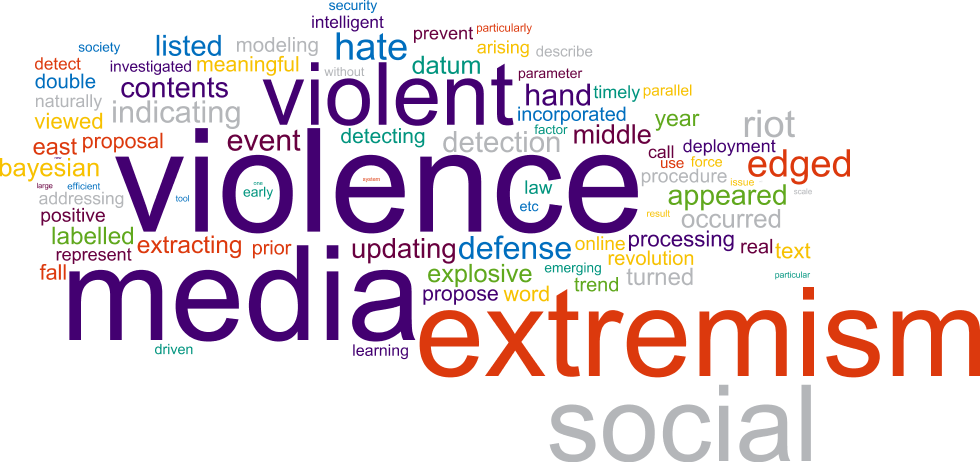I wrote this article on 31 August 2015
Great title, right? It got your attention. But more important than that, to many people that is the truth. Life has not been good for many thousands, if not millions or people worldwide. All that anyone has to do is turn on the news channel and you will hear of atrocities, death, violence, war, terrorism, and so on. Bullying is rampant in American schools. The suicide rate among teenagers is high. Husbands batter and abuse their wives. The war of drugs is losing. The President of the United States (Barack Obama), in my opinion, is a racist. Neither the Republican Party, nor the left-wing liars of the Democratic Party have real answers. Criminals use guns to kill people, and the gun-haters want to take weapons away from those who obey the law. A single court (the Supreme Court) overthrows the votes of many millions of voters and stuffs an undesired lifestyle down their throats. The police are seen as the enemy and criminals are defended by the public. And that is just some of what is happening today. Other than all of that, life is great!
No wonder anxiety and stress is becoming a growing problem. A person who walks into a building full of children and kills many of them is the symptom of a real and mostly ignored problem in these United States. We quickly excuse the situation as that of mental illness, evil, terrorism, and other such terms. The problem is that we ignore the most likely reason: frustration.
It is one thing to demand something you have never had, it is another to lose something you have always had. The political climate in the United States, at present, lends itself to the manifestations of violence and further acts of aggression. As long as we continue to ignore the truth, we will be condemned to suffer the consequences. People who find no recourse for their frustrations will too many times take aggressive steps, which could include violence, to vent their sentiments.
The recent shooting of the reporter, cameraman, and guest on live television is just one more example. The talking heads on the news channels spouted words like, “crazy,” “evil,” and “deranged,” when speaking of the murderer, but seemed completely clueless of the real and underlining possibility for the motivation of the killer. Regardless of the fact that his actions were wrong and disastrous, the bits of information which started coming out about him pointed in the same direction: frustration.
 Humans are selfish. We were born that way. It is in our nature to look out for ourselves. It is only by maturity that people learn little-by-little to become more selfless. Selfishness has its positive side. Due to that we care for ourselves. We eat what we enjoy, we make time for ourselves, we strive for happiness, we care for those we love, and so forth. This level of selfishness is good and produces positive and healthy results. It is when selfishness is carried to the extreme that it becomes something ugly. When we are willing to benefit from something to the point that others lose or get hurt is when selfishness becomes dangerous and hurtful.
Humans are selfish. We were born that way. It is in our nature to look out for ourselves. It is only by maturity that people learn little-by-little to become more selfless. Selfishness has its positive side. Due to that we care for ourselves. We eat what we enjoy, we make time for ourselves, we strive for happiness, we care for those we love, and so forth. This level of selfishness is good and produces positive and healthy results. It is when selfishness is carried to the extreme that it becomes something ugly. When we are willing to benefit from something to the point that others lose or get hurt is when selfishness becomes dangerous and hurtful.
The dictionary gives one definition of selfish as: (of a person, action, or motive) lacking consideration for others; concerned chiefly with one’s own personal profit or pleasure. In the context of the first part of the definition, selfish means that someone who is being selfish does not care that others may be harmed as a result of his or her actions. But, if we take the second context and carefully look at it, we can see that someone may be act in their own favor without necessarily harming others in any way. For example, if I decide to eat two hamburgers today, instead of maybe sharing one of them with someone else, I am harming no one, nor am I necessarily being inconsiderate. As well, what if I am a rich man, and want to share my money with others, but I want to benefit from sharing with them? I am being selfish, and still benefitting others.
In this last context, God is selfish. He wants things His way. He will not allow exceptions, things must be done His way, and if we choose not to do things His way, He will exert His power to ensure that His will is done regardless. He has His plans, and He will not permit them to be changed, modified, or stopped. God wants what God wants, and He will do everything according to what He thinks is best, without considering anyone else’s opinion. Notice Ephesians 1: 4 and 11.
We are like God in this aspect. We want things to be the way we want things to be. This is just human nature. It does not either make us bad or good. We work things to our own “good” throughout our lives. Our goal (selfish or selfless) is to “live long and prosper” as a character in the popular television series “Star Trek,” once said. We want to be happy, we want those we love to be happy, and we don’t want anything to change that, especially not something which would harm us in any way. But, what happens when something does harm us, when we unfairly lose something we have always had, or when we are deprived of something that is supposed to be our right? Well, we become angry.
 Frustration leads to anger. It is the direct result of this sense of unfairness which is the result when we have no recourse to release frustrations. The murder of those people on live television is but a tiny example of what is happening in the world today. The earth is pregnant with the frustration of unfairness. Take for example, the Middle East. The little country of Israel is surrounded by large Islamic countries. Their hatred of Israel is based on their perspective that the Israelites are occupiers of stolen land. The Palestinians are the best example in this mess, from their point of view, something that they have always had was taken from them to be given to those who did not already have it. The wants of the few outweighed the needs of the many. To make matters worse for them, the United Nations, with the United States and England primarily endorsing the effort, their country gets chopped up into pieces and the “invaders” are supported by the world powers. Instead of defending the Palestinians from invasion and occupation, the very resource which should have been there to help countries from such an invasion, aligned instead with the invaders. Then, when Iraq invades Kuwait, those same powers come out in force to defend the small country and repels the invaders. From the point of view of the Palestinians, where is the justice and fairness? What are they told to do? Accept it.
Frustration leads to anger. It is the direct result of this sense of unfairness which is the result when we have no recourse to release frustrations. The murder of those people on live television is but a tiny example of what is happening in the world today. The earth is pregnant with the frustration of unfairness. Take for example, the Middle East. The little country of Israel is surrounded by large Islamic countries. Their hatred of Israel is based on their perspective that the Israelites are occupiers of stolen land. The Palestinians are the best example in this mess, from their point of view, something that they have always had was taken from them to be given to those who did not already have it. The wants of the few outweighed the needs of the many. To make matters worse for them, the United Nations, with the United States and England primarily endorsing the effort, their country gets chopped up into pieces and the “invaders” are supported by the world powers. Instead of defending the Palestinians from invasion and occupation, the very resource which should have been there to help countries from such an invasion, aligned instead with the invaders. Then, when Iraq invades Kuwait, those same powers come out in force to defend the small country and repels the invaders. From the point of view of the Palestinians, where is the justice and fairness? What are they told to do? Accept it.
 Frustration has been evident in many of the shootings and criminal actions of late. Blacks rioted in Ferguson and destroyed their own community; the result of lingering frustration. The shooters at Columbine had reportedly been the victims of bullying, and in their frustration chose to use violence as the only recourse for them. Any search of the internet will produce many cases of people returning to their last place of employment and killing fellow employees. Why? Frustration. In their minds, there was no other recourse, to them, they had tried what they could to get their point across and show why they were right and others were wrong. The question here is not whether they were in actuality right or wrong, the question is what can we do about their frustrations?
Frustration has been evident in many of the shootings and criminal actions of late. Blacks rioted in Ferguson and destroyed their own community; the result of lingering frustration. The shooters at Columbine had reportedly been the victims of bullying, and in their frustration chose to use violence as the only recourse for them. Any search of the internet will produce many cases of people returning to their last place of employment and killing fellow employees. Why? Frustration. In their minds, there was no other recourse, to them, they had tried what they could to get their point across and show why they were right and others were wrong. The question here is not whether they were in actuality right or wrong, the question is what can we do about their frustrations?
I mentioned the decision by the Supreme Court above, and I want to touch on that subject again as another example. Millions of people in several states voted against same-sex marriage. This has been a hot issue for many years, it is something extremely important and personal to many citizens of these United States. It is possible that with time, these very same citizens would have voted for same-sex marriage, but not today. Along with this, there is an underlining belief that the vote of the American citizen is sacred and valuable, and a right which cannot be taken away. The decision by the Supreme Court violated that right. It did away with the legitimate votes of millions with just one simple declaration. What all Americans have always had (the right to have the vote of the majority win), has been displaced and removed. We all know now, from that fateful day and on, that the legal vote of the majority of the citizenry can be ignored if someone with enough power dos not like it. What we have always had (the sanctity of marriage) has been taken away from us, and what others never had (the legal right to marry) has been given to them in disregard of the majority’s opinion. And, to make matter worse, we can do nothing legal about it. How frustrating!
 As a counselor, I encounter this anger all the time. People are frustrated because of circumstances in their lives. Wives complain of husbands who do not keep their word. Husbands complain of wives who “want to change” them. Church members complain of pastors who “lord it over” them. Children complain of parents who exasperate them. Adult children complain that their parents love the other adult child more. People complain that God should have done this or not done that. Many clients have high expectations of what life should have been like, only to realize that life “sucks” for everyone. The Victim Mentality is prevalent in our society, and it shows no possibility of lessening. The politically-correct mentality infringes on the healthier way of managing our lives and relationships, producing less healthy, co-dependent, weaklings who want life to conform to their standards. “Life,” as such, conforms to no one. We either will take responsibility for ourselves, or we will suffer the consequences: frustration.
As a counselor, I encounter this anger all the time. People are frustrated because of circumstances in their lives. Wives complain of husbands who do not keep their word. Husbands complain of wives who “want to change” them. Church members complain of pastors who “lord it over” them. Children complain of parents who exasperate them. Adult children complain that their parents love the other adult child more. People complain that God should have done this or not done that. Many clients have high expectations of what life should have been like, only to realize that life “sucks” for everyone. The Victim Mentality is prevalent in our society, and it shows no possibility of lessening. The politically-correct mentality infringes on the healthier way of managing our lives and relationships, producing less healthy, co-dependent, weaklings who want life to conform to their standards. “Life,” as such, conforms to no one. We either will take responsibility for ourselves, or we will suffer the consequences: frustration.
As a counselor, my job is to help someone find answers which will work in their life, to resolve, and hopefully eliminate, their immediate and long-term problems. To accomplish this, I need to understand the problem. I have always believed that the answer to any problem will be found in the problem itself. The better I understand what the problem is, the closer I am to a solution. When it comes to frustration, though, there seems to be an added challenge; the answer may not be available.
The “answer” for the Middle East “problem” is the removal of Israel, and elimination of all interference by foreign powers regarding the progress of Islamic countries. That is a solution which will not be forthcoming. The West, especially the United States, will not turn its back on Israel. It is has great strategic value to the US, besides the treaty we have with them (I support Israel, by the way). So the result for the Moslems is frustration, and the result of that frustration is anger.
Oftentimes, clients will hide their frustration. The result will be pent up anger, which they will disguise as victimization.  They are so frustrated with circumstances (a misbehaving husband or wife, for instance) that they view the problem as one of injustice (I am being treated unfairly), so they respond as victims (something must be done about this), and when they have tried “everything” they will have only two options: accept defeat or fight back.
They are so frustrated with circumstances (a misbehaving husband or wife, for instance) that they view the problem as one of injustice (I am being treated unfairly), so they respond as victims (something must be done about this), and when they have tried “everything” they will have only two options: accept defeat or fight back.
For those of you, dear readers, who argue that someone just has to accept what they cannot change and go on with their lives, consider this scenario.
One day foreign forces invade and occupy a US territory, let’s say Hawaii. The invading army takes control of the state government and imposes martial law, effectively stripping every Hawaiian of their legal rights. The Hawaiians have two choices: 1) Accept that they are now governed by a foreign power, and go about their business as an occupied people, or 2) Fight for their freedom. Which would you want these people, the Hawaiians, our fellow citizens, to do?
After a truncated effort by the United States government to demand that the invading force remove its army, we would launch such an attack which would likely leave the world spinning its head with the rapidity of our response. Violence would be the answer to the frustration produced by the actions of a foreign power.
One of my research studies, that of the behavior of men who physically abuse their wives, produced several interesting points of consideration. My main focus was on why these men chose to be violent with these women they allegedly loved. You would imagine that they would instead choose to keep their arguments limited to words rather than opting to attack their spouse. My research included myself. For the first six years of my marriage to my wife, I physically (as well as emotionally) abused her.
Without justifying anything, I asked the right question, “What was at the core of this behavior?” Why was it that these men resorted to violence? As I studied and researched, and better understood the problem, I came to some conclusions.
First, let me share what is not the answer: labeling. Resorting to labeling the men as abusers, crazies, evil, batterers, sick, and so on, helped in no manner, and only served to cloud the issue. Labelling people puts them into a category, and doing so helps others to just cast them away as useless. Indeed, some men who are violent are crazy, some are mentally unstable, and some are just plain confused about how to deal with any relationship, so they choose violence. But, the greater number are not such, these men are those who reached a point of frustration which tells them they have no other option but violence. In their minds they have “tried everything,” and it didn’t work, so they resorted to violence. The sad thing is that the violence actually works, to a point.
Take Julio for example, Julio and Rosa got married on their 20th birthdate. Yes, they have the same birthdate, year and everything, but he is four hours older. Rosa was the youngest of four kids, and Julio was the oldest of three. Rosa’s parents fought often and separated at least three times according to her memory, and Julio’s dad died when he was 11, from a car accident.
When Rosa was 10 years old, her uncle started molesting her and this lasted for almost three years. When she told her mother that her uncle (the mom’s brother) was molesting her, the mom punished her for “lying,” and told her never to mention that again. Julio grew up with the knowledge that you could easily lose the people close to you, so he developed the need to try to control those around him. When he could do that, he felt safer.
By the time that they got married, Rosa had develop a need to have males approve her, which made her a target for men who took advantage of her at times. Julio, on the other hand, grew to learn that even the threat of violence was enough to get people to comply.
Julio and Rosa fell “in love,” and decided to get married. Julio could find no fault in Rosa, and she saw only strength in him. The very things that drew them together were the things that started to divide them.
Rosa’s neediness made her clingy and codependent on Julio, and his defensiveness pushed her away. The more she wanted from him, the more fearful he became because he did not know how to handle her neediness. She would make demands on him, and he would scream at her to back off. The more he insisted that she back off, the needier she felt and the greater the demands.
Julio’s mind told him that she was not listening to him, because if she was she would understand and agree with him. At first he would just argue with her, later he started yelling at her, and after a time, he started threatening her. Her lack of expected response created in Julio a frustration as he had not experienced before.  His mind told him that what he was doing was not only not working, but that it would never succeed. During one of their more spirited arguments, he snapped and hit Rosa. The lie he believed was that he had no other option, because he “had tried everything.”
His mind told him that what he was doing was not only not working, but that it would never succeed. During one of their more spirited arguments, he snapped and hit Rosa. The lie he believed was that he had no other option, because he “had tried everything.”
Most men who physically abuse their wives fall into this category (if you like) of why they use violence against their spouses. In their minds, they believe that they have run out of options.
Again, this does not excuse them, but it can help us to understand the dynamics of frustration.
In his book, “Understanding Conflict And War: Vol. 3: Conflict In Perspective, Chapter 3 – Frustration, Deprivation, Aggression, And The Conflict Helix,” R. J. Rummel says, “Moreover, we are often unable to satisfy our desires or accomplish our goals. Sometimes our ambitions exceed our abilities, or we misperceive the possibilities. But sometimes we are blocked by an external barrier that precludes gratification. This may be a traffic jam preventing us from reaching an appointment, a college rule prohibiting us from taking a particular course, an amorous neighborhood tom cat interrupting our sleep, or our race restricting professional advancement. Whatever the barrier, we are frustrated. All of us are so frustrated from time to time.”
“In addition, we all have experienced irritation and anger at some frustrations. A long line preventing us from seeing an eagerly awaited movie, a crush of shoppers hindering the purchase of some simple necessities, a slow driver obstructing a narrow road, probably have aroused in all of us that familiar flush of annoyance, even anger. That frustration of our desires and goals occasionally leads to anger is a commonplace. It is subjectively unquestionable — a fact of our existence.”
We get frustrated because we get stuck. We cannot move forward, and we cannot change things. We feel deprived, and that only emphasizes the unfairness of the situation.
Of course, the better answer is for people to learn to “accept those things we cannot change,” as the Serenity Prayer states, but that does not help with the problem in any manner. Why? Because some things should not be accepted. Racism, violence, injustice, and other similar things should never be acceptable under any guise. Those things are wrong and must be eliminated, or at least suppressed. In those cases aggression is understood, if not actually condoned. But, what usually results is that those who witness such aggression, as in the case of the shooter of the television crew, refuse to consider the possibility that it was simple frustration which may have prompted the killer. To consider that his motive, distorted as it may have been, was that he became frustrated because he believed that the system failed him. In his own mind, he may have reached the point where he had no other option available to him that seemed as though it would help him achieve his goal.
Many of my clients, in these 28 years of counseling, have been at that same point. They may not have decided that killing someone else was the answer, but many of them were at their wits end when they came to see me. In many cases, I strongly believe, many of them were able to come to an acceptable acceptance of their circumstances. I was able to help them find another answer, not the one they believed to be the fairest, just, or correct one, but one they decided to live with. I am painfully aware of one client, many years ago, who even after counseling with me, and another qualified counselor, still succumbed to his frustrations and he killed his wife in front of their children.
Pay attention to the news, the people in your life, and those nearest to you, and you will find examples of people struggling with frustrations.
Further in his writing, R. J. Rummel, said this, “It is remarkable that those who are most deprived, most oppressed, most in need, are not those who usually violently rebel. Of course there have been food riots and peasant uprisings, but most often revolutions and violence have occurred when conditions are better or have been improving, and among those who are not the most deprived.”
“Explanations vary but generally focus on two propositions. First, deprivation is subjective, a function of a person’s perception, needs, and knowledge. To nail deprivation to an objective or absolute lack of something such as freedom, equality, or sustenance, is to ignore that definitions of these shift according to historical period, culture, society, position, and person.”
“However, some internal norms or standards, some benchmarks, against which to assess deprivation are still required. The second proposition, therefore, deals with these norms. It asserts that we take our presently perceived or expected position, achievements, gratifications, or capabilities as a base of comparison against our wants or needs, or what we feel we ought to have. The gap between wants or oughts and gratifications or capabilities is then our deprivation, or relative deprivation in the sense that it depends on our base of comparison.”
In other words, just because someone else is able to brush off an injustice or mistreatment, and “bury the hatchet,” is no indication that it is the norm. We, each of us, decides in our own minds what is acceptable and unacceptable in our lives.
One person may accept slavery, and the next one will fight it with all their might. One person may accept racism, and the other will openly demonstrate aggression against it. One person may accept that they have been rejected, and the other will go into a building full of children and kill as many as he can.

LITTLETON, CO – APRIL 20: (VIDEO CAPTURE) Columbine high school shooters Eric Harris (L) and Dylan Klebold appear on a surveillance tape in the cafeteria at Columbine High School April 20, 1999 in Littleton, CO during their shooting spree which killed 13 people.






